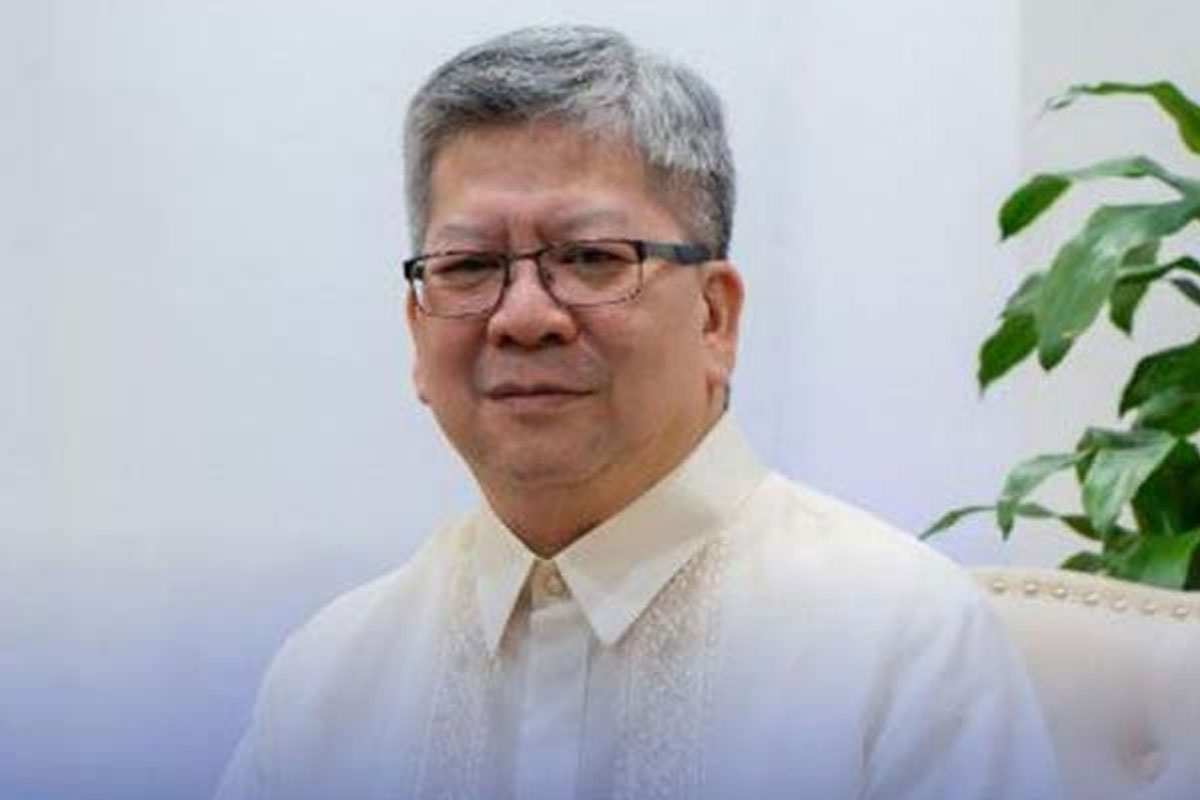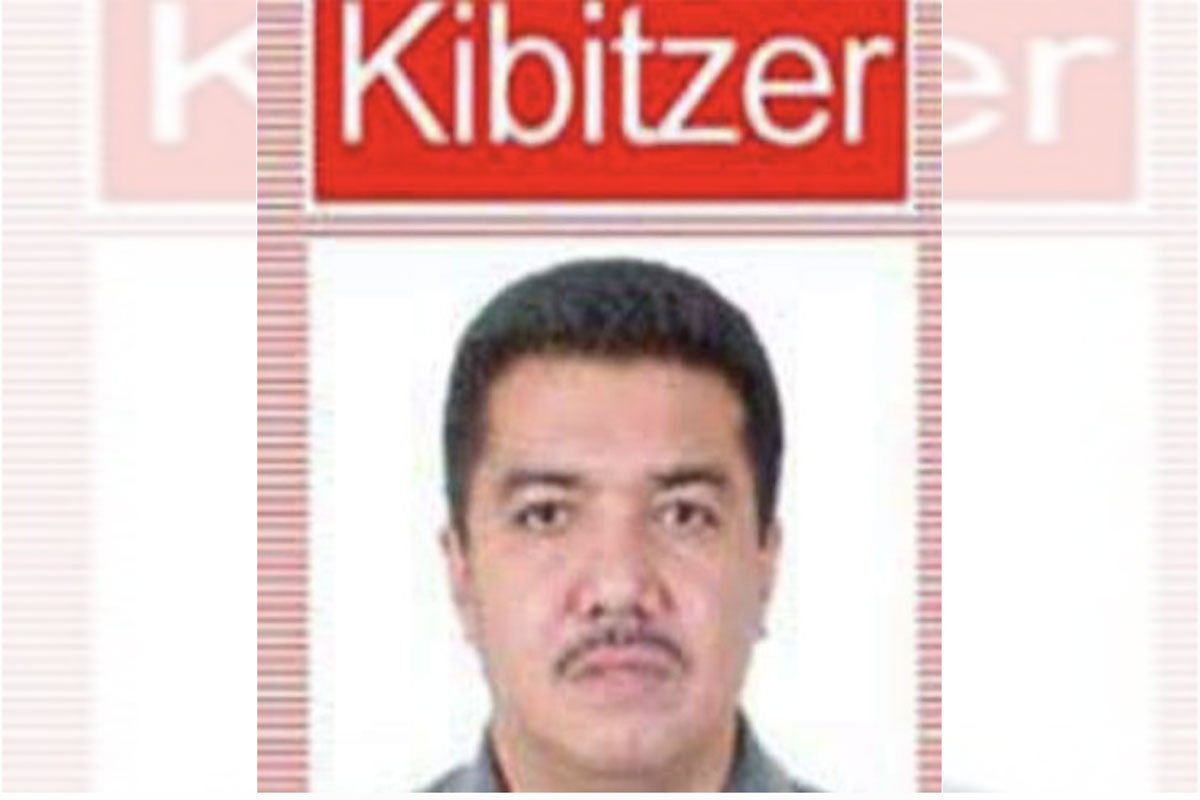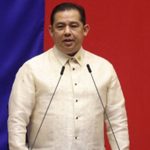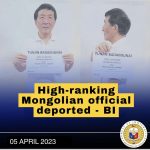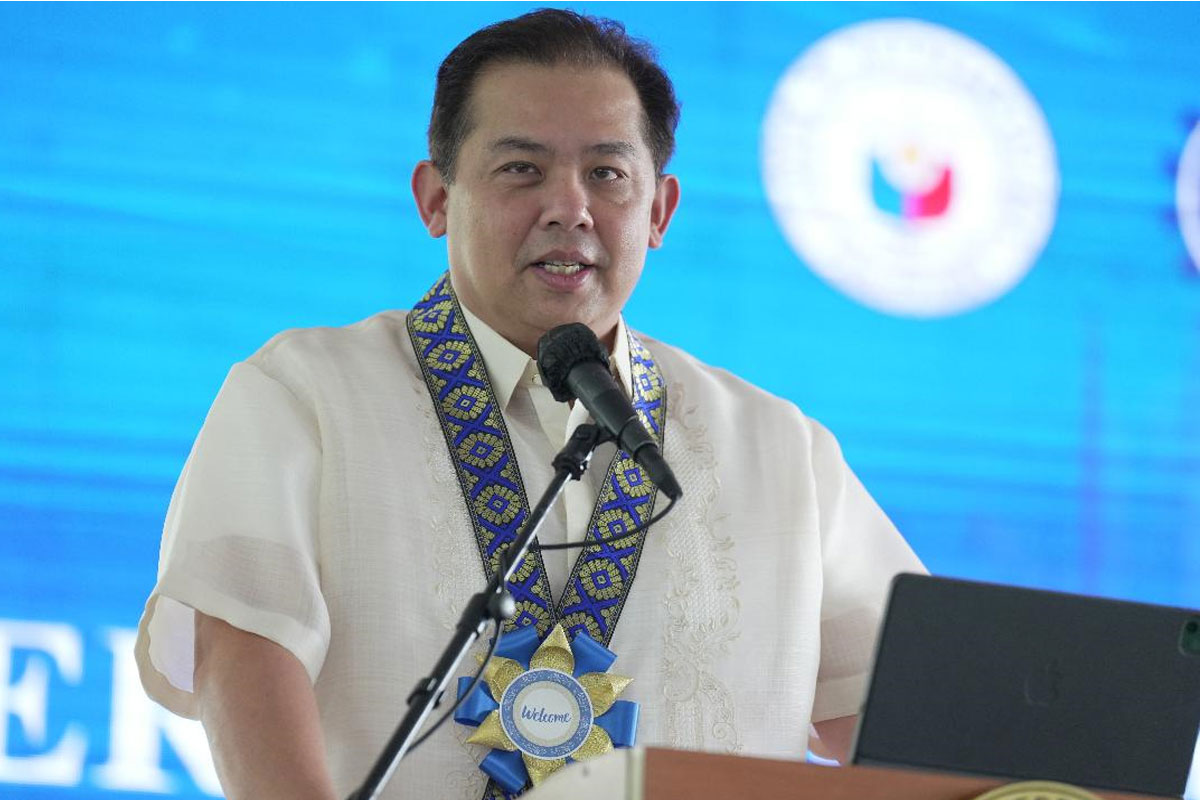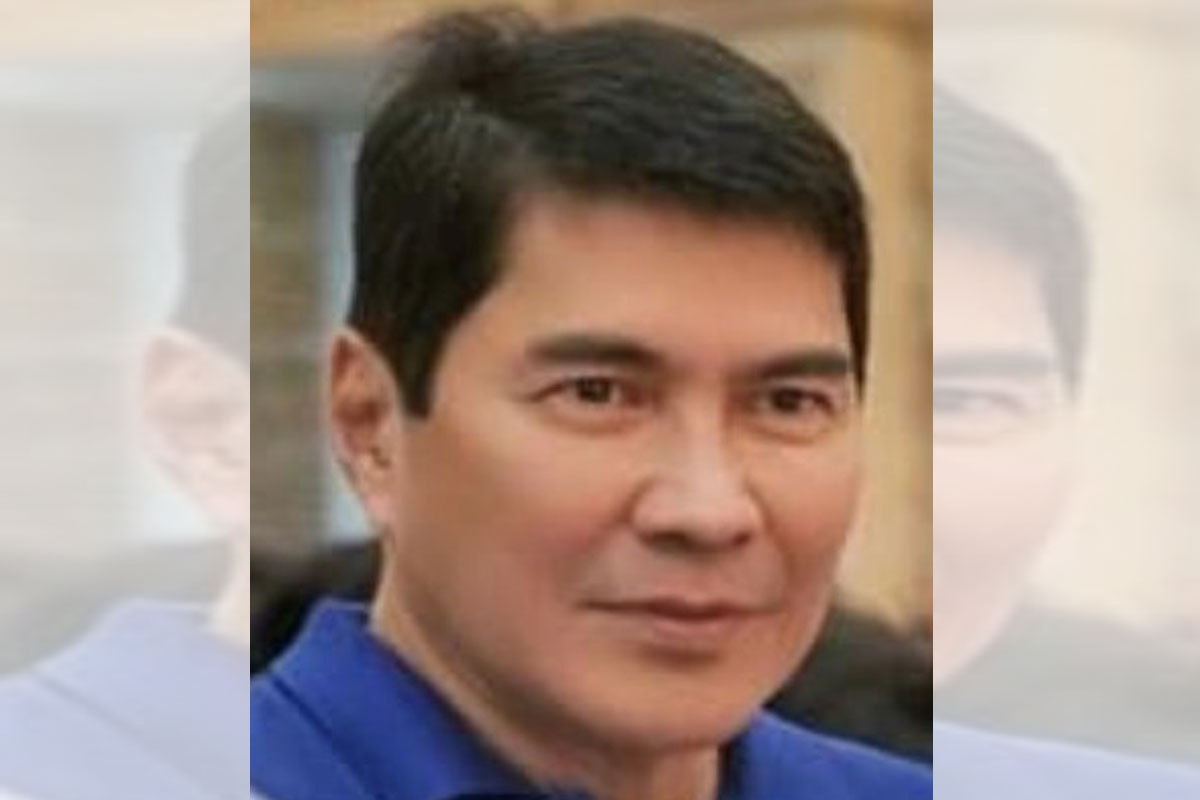
LRay hopes solons consider Padilla report this summer break
CAMARINES Sur Representative LRay Villafuerte is hoping that members of the Senate Committee on Constitutional Amendments and Revision of Codes can find the time this congressional break to weigh this panel’s report on the need to amend the restrictive economic provisions of the Constitution that have put off investors despite the Philippines’ status as an Asian pre- and post-pandemic outperformer.
Although this committee chaired by Senator Robinhood Padilla had sought senator-members’ approval of its report endorsing Charter Change via the Constituent Assembly (Con-Ass) option – as against the House-approved resolution and bill advocating the Constitutional Convention (Con-Con) route –Villafuerte said he nonetheless welcomed this development as it will “keep the process of constitutional reform going in the 19th Congress.”
“We are hoping our senators, especially the members of the Senate committee on constitutional amendments and revision of codes, can find time during our recess to consider the report of its chairman, Sen. Robin, endorsing constitutional reforms to do away with our 1987 Charter’s economic provisions that have restricted foreign ownership of, or participation in, Philippine businesses,” Villafuerte said.
“As what I have said before the congressional break, it’s beside the point whether the Senate would take a look at improving our Constitution by way of a Con-Con or Con-Ass. What is important at this stage is for the Senate to consider amendments to our flawed Constitution, so the 19th Congress can come up with a consolidated measure green-lighting a Charter makeover, preferably before 2023 is over.”
“The important thing is for us lawmakers to keep the ball rolling on constitutional reforms, in the hope that we can do away soon enough with the restrictive economic provisions of our 36-year-old Charter that have put off investors and impeded the inrush of FDIs (foreign direct investments),” said Villafuerte, who heads the National Unity Party (NUP) that has thrown its full backing behind the House leadership’s push for Charter Change via the Con-Con route.
The CamSur solon noted that “As claimed by Padilla, the Senate committee report had limited proposed changes to only the economic provisions of our Constitution, which is already one common ground for both chambers as this is likewise the raison d’etre of the House-approved resolution and implementing bill on constitutional reform.”
Before the March 24-May 7 summer break of the Congress, the House had passed by a vote of 301, or nearly 96% of its 314 members, both Resolution of Both Houses (RHB) No. 6 proposing constitutional reform via a hybrid Con-Con comprising elective and appointive delegates, and House Bill (HB) No. 7325 that will be RHB 6’s implementing law.
All 45 members of the NUP, which is the biggest power bloc in the House next to the ruling Lakas-CMD led by Speaker Martin Romualdez, had voted for both RHB 6 and HB 7325.
HB 7325 had consolidated four Con-Con bills introduced in the chamber, including HB 4926, authored by Villafuerte.
Villafuerte issued his statement this Holy Week after Padilla revealed last week that his office had already distributed copies of his report to all senators and expressed the hope that “they would read it.”
According to Padilla, his committee report needs to be signed by at least nine members of his panel before it can be endorsed to the Senate plenary for deliberation and debate.
Even if the Senate committee were to end up approving the Padilla-drafted committee report endorsing the Con-Ass option, Villafuerte said “this would keep the ball rolling” on Charter Change, more so because the Speaker himself had said he was open to considering any Senate proposal on how to amend the Constitution.
Before the Speaker aired in a March 24 statement his openness to discussing any mode to amend the 1987 Charter, Villafuerte had already expressed the same position and proposed that Charter Change proponents in both the Senate and the House meet during the six-week congressional break to try finding “common ground” on how to pursue long-needed constitutional reform this year.
“Speaker Martin’s openness to any Senate proposal on how to pursue constitutional reform, despite the supermajority support in the House for a Con-Con (Constitutional Convention) to pursue the makeover, augurs well for an early meeting between Charter Change proponents in both chambers to try finding common ground on how to do it before the year is over,” Villafuerte said.
Romualdez mentioned in his statement that, “We are open to [considering] any proposal of the Senate and will submit such a proposal to members of the House. If the Senate wants a different mode, that is their discretion.”
“The House leadership, however, is willing to open discussions with the Senate on their preferred mode of amending the Constitution if that will lead to an agreement between the two chambers,” Romualdez said.
Padilla submitted his committee report on Charter Change after holding eight hearings, including three that were held in the cities of Davao, Baguio, and Cebu.
Before the break, he had scheduled a meeting with Charter Change proponents in the House led by Cagayan de Oro City Rep. Rufus Rodriguez, who chairs the House committee on constitutional amendments, to discuss RBH 6 and HB 7325.
But this engagement was called off by Padilla at the last minute after Senate President Juan Miguel Zubiri had told the committee chairman that inviting Rodriguez’s group would violate the “longstanding” tradition of inter-parliamentary courtesy.
Zubiri further said that if such a gathering would indeed take place, it should be a closed-door executive session and not a public hearing.
Padilla said his committee report had limited Charter Change to the Charter’s economic provisions “perceived to be barriers to trade and investment responsible for the continuous decline of FDIs and placed the country as one of the most restrictive economies by international standards.”
The committee report stressed, he said, that the “prohibitive” economic provisions on foreign investors had left the country lagging behind its neighbors in terms of FDIs despite its offer of tax holidays and other fiscal incentives.
Earlier, Padilla said he had sent letters to Zubiri, Senate President Pro tempore Loren Legarda, Majority Leader Joel Villanueva, and Minority Leader Aquilino Pimentel III asking the Senate leadership to schedule at the soonest a joint caucus among lawmakers from both chambers to discuss the proposed constitutional amendments.
Echoing Villafuerte’s view, Padilla had said the Senate leadership need not wait for the congressional break to end on May 7 before having such a proposed discussion between senators and their House counterparts.
For Villafuerte, “Holding the called-off meeting on RBH 6 HB 7325 even during our break will drive home the message on the urgency of constitutional reform, given that we cannot hope to replicate the inrush of FDIs to our more vibrant neighbors for so long as we remain stuck with the antiquated economic provisions of our Constitution on restricted foreign participation in Philippine businesses that have put off investors.”
He said, “(The) House members could freely attend such a Senate hearing, if there will be one, especially now that the House leadership had authorized the heads of the various House committees to hold meetings during our congressional break, if and when needed.”
Villafuerte had appealed to senators to give Charter Change a chance and to attend to it “with a similar sense of urgency, out of consideration for its supermajority support in the House of Representatives, and given the fact that a majority of them were once members of this bigger chamber.”
Thirteen senators had been elected to the House at one time or another in the past.
Zubiri himself had been elected to the House for three terms, said Villafuerte.
Villafuerte said he himself had batted for the Con-Con option so constitutional reform wouldn’t suffer the same fate that had befallen past initiatives to amend the Charter, which was to get shot down by senators who feared the Con-Ass mode could marginalize them in the voting, in light of the protracted debates over whether the 1987 Constitution requires members of the Senate and the House to vote separately or jointly on proposed amendments.
In case the called-off meeting between the Charter change proponents in the Senate and House actually happens during the break, Villafuerte suggested that they meet in an open session in the interest of full transparency and not behind closed doors as preferred by Zubiri.
“The last thing we need is to hold such a meeting behind closed doors, which is the apparent preference of the Senate President, as such a secretive engagement would not afford our people a splendid chance to hear from our legislators from both chambers the pros and cons of constitutional reform, and which between the Con-Con and Con-Ass is the better route to tweaking our 36-year-old Charter,” he said.
“Moreover, holding a closed-door session would only fuel further a misplaced public suspicion that lawmakers advocating constitutional reform to rid the Constitution of its economic provisions that have long impeded the inrush of FDI flows have a hidden political agenda behind this revived initiative for a Charter makeover,” he added.
Hence, he said, “it is better for this meeting to take place now and for it to be held in public, rather than in an executive session, to allow a free flow of ideas among our lawmakers that would eventually enable our people to make an informed choice on constitutional reform.”
As for the concern that the House has been unduly rushing constitutional reform in lieu of priority measures beneficial to the Filipino majority, Villafuerte said Charter Change advocates in the bigger chamber have not been hurrying constitutional reform, considering that the push for changes to the 1987 Charter has been there for almost three decades now since the presidency of the late Fidel Ramos.
“How can we in the House be rushing off on something that has been with us for nearly three decades now? Charter Change first surfaced during the former Ramos presidency or not even a decade after our Constitution was ratified on the watch of the late President Cory Aquino?” Villafuerte stressed.
“Since then, this call for Charter Change surfaced again and again in the Administrations that followed from the time of former President Estrada up to ex-President Duterte’s. This only goes to show that the clamor for constitutional reform has been long there and, more importantly, that what we have been doing in the House is to simply revitalize a legitimate, ever-growing cause,” he added.
“The last thing we need is to hold such a meeting behind closed doors, which is the apparent preference of the Senate President, as such a secretive engagement would not afford our people a splendid chance to hear from our legislators from both chambers the pros and cons of constitutional reform, and which between the Con-Con and Con-Ass is the better route to tweaking our 36-year-old Charter,” he said.
Villafuerte pointed out earlier that there wouldn’t be any breach of interparliamentary courtesy if Rodriguez and other House members were to attend a Senate public hearing, as these solons would be doing so of their own volition.
There would only be a violation of interparliamentary courtesy if a Senate committee would compel any House member to attend its public hearing, said Villafuerte, who recalled that he himself had attended a Senate hearing presided over by then-Sen. Panfilo Lacson.
Moreover, Villafuerte recalled that Padilla had said that House members had attended his committee’s out-of-town hearings on Charter amendment.





